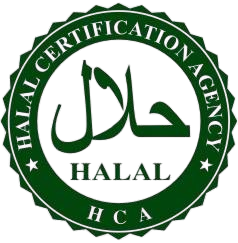1. Submit Application:
Customers seeking Halal certification submit an application form (Application form MF 09.01) to HAV, including information about the company and the products that require Halal certification
2. Quotation and Contract Signing
After HAV receives the certification application (Application form MF 09.01), the certification council will review it, notify the customer of the costs, and include the contract for signing
After signing the contract, the customer submits a complete set of documents to HAV, including:
- Halal certification contract
- Company introduction document (including an organizational chart)
- Business registration or establishment decision
- Operating licenses (if any)
- Production process/flowchart of the certified products
- Test results of the certified products (if any)
- Other certificates such as ISO, HACCP, GMP, GAP (if any)
- Company trademark registration, if available
- Branch address of the company
- Environmental sanitation certificate
- Fire safety certificate
- Wastewater treatment process and related documents
- Laboratory analysis records”
3. Document Evaluation
The review and evaluation of the documents submitted by the customer include a detailed analysis of the company’s records and the application, business registration licenses, products and their components, names and addresses of manufacturers and raw material suppliers, the status of the components concerning Halal requirements, packaging materials, production processes, and procedures. After the document evaluation, if any other necessary documents are missing, the expert may review them during the on-site evaluation
4. Site Evaluation
- The on-site inspection of the customer must comply with HAV’s procedures.
- The on-site inspection is an official evaluation that includes meetings with company leaders and directly interviews responsible personnel for production.
- The on-site inspection involves checking declared components, raw material and finished product storage, warehouses, processing plants production flowcharts and addressing aspects of the production process, product packaging, sanitation programs, and quality control.
- Discussions with company management and responsible production staff for compliance are conducted to confirm observations and necessary recommendations by stakeholders.
5. Preparing Report
The expert and Halal auditors conduct the assessment and analysis, then writes a comprehensive report on the status of compliance with Halal requirements.
6.Technical Review
The evaluation documents will be submitted and reviewed by the Halal Certification Council.
7. Issue Halal Certificate:
HAV will issue Halal certificate and allow the use of the Halal logo for products
8.Halal Certificate and Logo
The validity period of the certificate is one year, with supervision conducted once every six months. The recertification evaluation is to be performed no later than one month before the expiration date
9. Compliance in Halal Evaluation
HAV will assess compliance with Halal requirements through regular or surprise audits when there is evidence that the company is not adhering to Halal standards.
If any changes are detected during the period following the issuance of the Halal Certificate that were made by the manufacturers without prior approval from HAV, it will result in the suspension or revocation of the certificate’s validity.
These changes may include significant or minor non-compliances:
- MINOR (Minor Non-compliance): Related to hygiene and safety.
- MAJOR (Major Non-compliance): Related to changes in ingredients, suppliers, machinery, and relocation of the factory.
The aforementioned violations will lead to the suspension of the certificate’s validity, and the company must implement corrective actions.
Serious issues involve the use of Haram (prohibited) ingredients in production (e.g., not slaughtering animals according to Islamic rites, using pork or its derivatives).
Violations of these issues will result in the revocation of the issued certificate.
10. Time
The total duration for the assessment and issuance of the Halal certificate is within one month. This process includes document evaluation, on-site inspections, reporting, technical review, and the issuance of the Halal certificate.
However, the time frame depends on whether the payment has been made by the company. (After payment, the assessment and certificate issuance time is one month).”
11. Cost and Fee
Depending on the type of product, costs may vary, so please contact the center directly to know the exact fees for your company.
A strong commitment and awareness from everyone in the company is key to successfully implementing Halal food production
The certification organization can provide training on Halal requirements and offer guidance on food preparation, ingredients, slaughter techniques, training programs, and actively promote the production of Halal products.
We thoroughly examine raw materials, production processes, packaging, storage, etc. If there are any aspects that do not comply with Shari’ah law in Islam, we advise the company on how to address them. Our goal is to ensure that when evaluating and certifying the products registered by the company, they meet Halal standards, making the certification process straightforward. After that, we will agree with the company on procedures, costs, and other standards.

